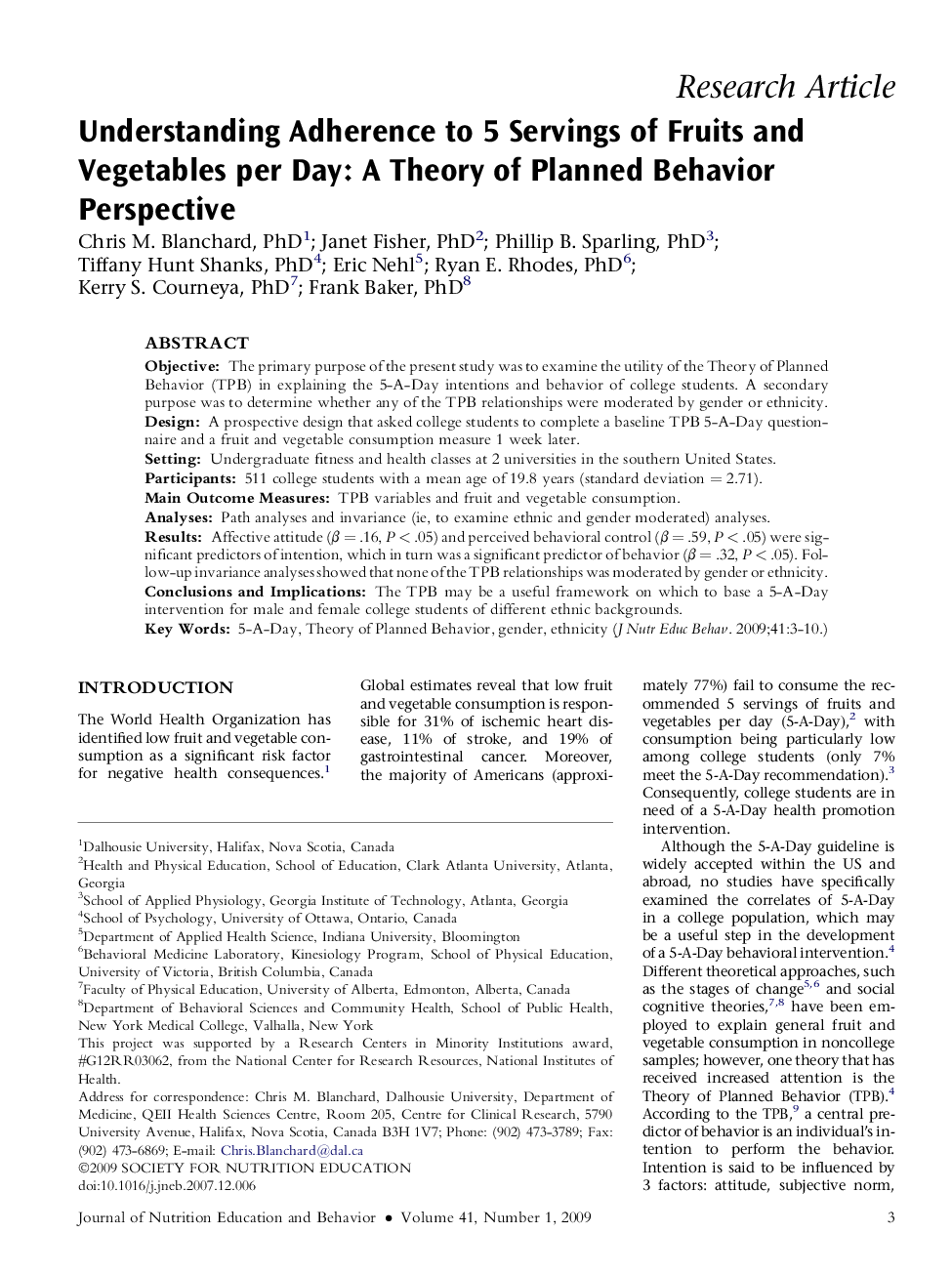| Article ID | Journal | Published Year | Pages | File Type |
|---|---|---|---|---|
| 362719 | Journal of Nutrition Education and Behavior | 2009 | 8 Pages |
ObjectiveThe primary purpose of the present study was to examine the utility of the Theory of Planned Behavior (TPB) in explaining the 5-A-Day intentions and behavior of college students. A secondary purpose was to determine whether any of the TPB relationships were moderated by gender or ethnicity.DesignA prospective design that asked college students to complete a baseline TPB 5-A-Day questionnaire and a fruit and vegetable consumption measure 1 week later.SettingUndergraduate fitness and health classes at 2 universities in the southern United States.Participants511 college students with a mean age of 19.8 years (standard deviation = 2.71).Main Outcome MeasuresTPB variables and fruit and vegetable consumption.AnalysesPath analyses and invariance (ie, to examine ethnic and gender moderated) analyses.ResultsAffective attitude (β = .16, P < .05) and perceived behavioral control (β = .59, P < .05) were significant predictors of intention, which in turn was a significant predictor of behavior (β = .32, P < .05). Follow-up invariance analyses showed that none of the TPB relationships was moderated by gender or ethnicity.Conclusions and ImplicationsThe TPB may be a useful framework on which to base a 5-A-Day intervention for male and female college students of different ethnic backgrounds.
